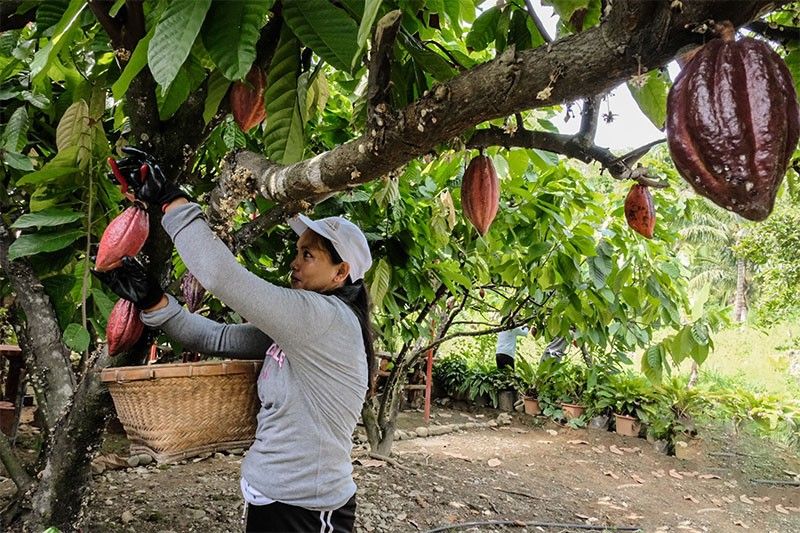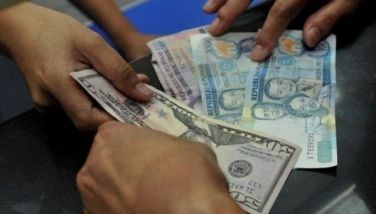Chocoholics bite bitter truth as cocoa prices soar (First of 2 Parts)

Special Report
MANILA, Philippines — Bakers like Carolyn are facing a bitter truth: cocoa prices are rising.
It has been weeks since she last went to her regular bakery goods supplier.
What she thought to be a typical supply run to stock up on her ingredients turned out to be one of the biggest surprises in her young life as a home-based baker.
As she held up a pack of cocoa tablets, confusion began.
Parang hindi ito ang price dati? She told herself.
“Tapos ayun nga, nagtaas nga,” Carolyn Co, owner of online bakeshop Salted Caramel Manila, told The STAR.
Carolyn noted that the price of the local cocoa brand she uses has gone up by P15 to P20 per kilogram. Meanwhile, the two-and-a-half kilogram of imported cocoa she uses has increased by P500. This is just in the past six months.
She started her home bakery late last year. Since then, she has not raised the prices of her revel bars and chocolate cookies.
But the likes of Carolyn are few and far between today.
Cocoa rising
Some of the home bakers, especially those selling online, have been forced to be creative in coping with the cocoa price situation to ensure their businesses’ survival.
Most have already increased prices outright between P20 and P50 per offering. Others have reworked their bundles and packages, either offering fewer chocolate-based products or replacing them with other items to keep prices the same.
But it is not only bakers that are reeling from high cocoa prices.
Small-time beverage vendors were not spared. Wholesale prices of soluble chocolate drinks, often popular to students, have risen by as much as P100 per pack.
Even multinational and corporate industry players have adjusted too. Chocolate bar prices in the market have increased by P2 or P3, depending on the brand and weight.
And the story is the same for artisanal chocolatiers. Prices are up by P10 to P100 depending on the product. Chocolate bars are up by P10 to P20 while tablea increased by P50 per kilogram.
Cocoa powder is another story: some have risen by P100 per pack, worse, others have doubled or even more than doubled in prices to as much as P800 per kilogram.
Cacao situation
The Philippines produces cacao, but it also imports the product. Last year, local production hit a record level of 10,700 metric tons (MT). Still, it was insufficient to meet the market demand.
The country imported 2,000 MT of cacao beans. Industry observers peg the country’s overall demand for the crop beyond those figures, at around 50,000 MT.
Cocoa products are a different matter. Cacao is the unaltered and unprocessed form of cocoa.
The country imports an average of $220 million worth of cocoa products, including chocolates, in the past five years, based on Philippine Statistics Authority (PSA) data.
Last year, the country imported $305 million of cocoa products, about $135 million of which were chocolates.
Cocoa powder (whether sweetened or not) imports reached $81 million, making it the country’s second biggest imported cocoa-based product.
The country’s chocolate confectionery market is estimated to be worth about $456 million or almost P26.8 billion, according to the United States Department of Agriculture-Foreign Agricultural Service in Manila.
Filipinos’ demand for chocolates continues to grow driven by rising disposable income and enduring love for the confectionery. Plus, the health benefits brought about by some cocoa-based products have encouraged demand.
The testament to this has been the growing number of coffee shops and stores offering cocoa-based items as well as the rise of medium and small-scale chocolatiers and pastry shops and bakeries nationwide.
Cacao crash
Global cocoa prices, however, started to escalate in December last year as West African supplies disappeared gradually in the world market.
What happened? Climate crisis happened.
West Africa, which accounts for 70 percent of global cocoa supply, suffered the worst El Niño on record, resulting in erratic rainfall as well as dryer and hotter weather conditions that were conducive to the proliferation of pests and diseases.
All of these happened while West African cocoa farmers, mostly small holders, have been experiencing little to no government support.
In short, production plunged. The region is projected to lose at least 500,000 MT of production in the current season which ends in September, according to the International Cocoa Organization (ICCO).
As a result, the world is scrambling for cacao supplies. The ICCO expects the world to have a supply shortage of at least 439,000 MT at the end of the current season. Global cacao output is projected to fall by almost 12 percent on an annual basis to 4.461 million MT, according to ICCO.
“As the 2023-24 season progresses, it is certain the season will end in a higher deficit than previously expected,” the ICCO said.
And then April came. World cocoa prices reached the unimaginable. For the first time in history, a metric ton or 1,000 kilograms of cocoa in the world market cost $10,000, more than 250 percent over the last year and nearly double the record high set 46 years ago, according to Bloomberg.
That is $10 per kilogram or P550 per kilogram, at least.
In the second quarter, world cocoa prices averaged at $8.52 per kilogram, almost triple of the $3.01 per kilogram quotation in the same period last year, according to the World Bank.
Local cacao prices track or reference the world prices. But most of the time local prices are higher than ICO prices. But that changed this year.
(To be continued)
- Latest
- Trending



























